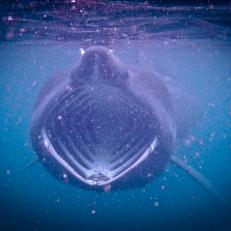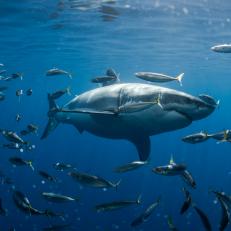5 Misconceptions About Sharks
Sharks are probably one of the most misunderstood creatures on earth. Whether it’s because of their Hollywood portrayal (yes, Jaws, we’re looking at you), or the fact they live underwater, there’s a bunch of myths circulating about these beautiful, majestic fish (yes, they’re fish!). As we count down the days to Shark Week, we decided we’d debunk some of the worst myths out there, and set the story straight once and for all.
Don't miss the ultimate SHARK WEEK guide for where and when to see it all on Discovery and discovery+.
Shop This Look
All sharks are vicious predators that hunt humans
In fact, the largest species of shark, the basking shark and whale shark — only feed on fish eggs and other tiny organisms. Sharks do not actively hunt humans; most human attacks are mistakes due to poor water visibility. Their preferred prey is fish and marine mammals, such as seals and sea lions. Recent research has indicated that shark attacks on humans in some parts of the world, such as the eastern US, Hawaii, and southern Australia, are on the rise. But scientists believe this is to do with the rise of fur seals along coastlines — a favorite prey of great white sharks, as well as rising human populations along coastlines and climate change shifting where sharks are congregating to search for food.











.jpg.rend.hgtvcom.231.231.suffix/1658256079221.jpeg)












